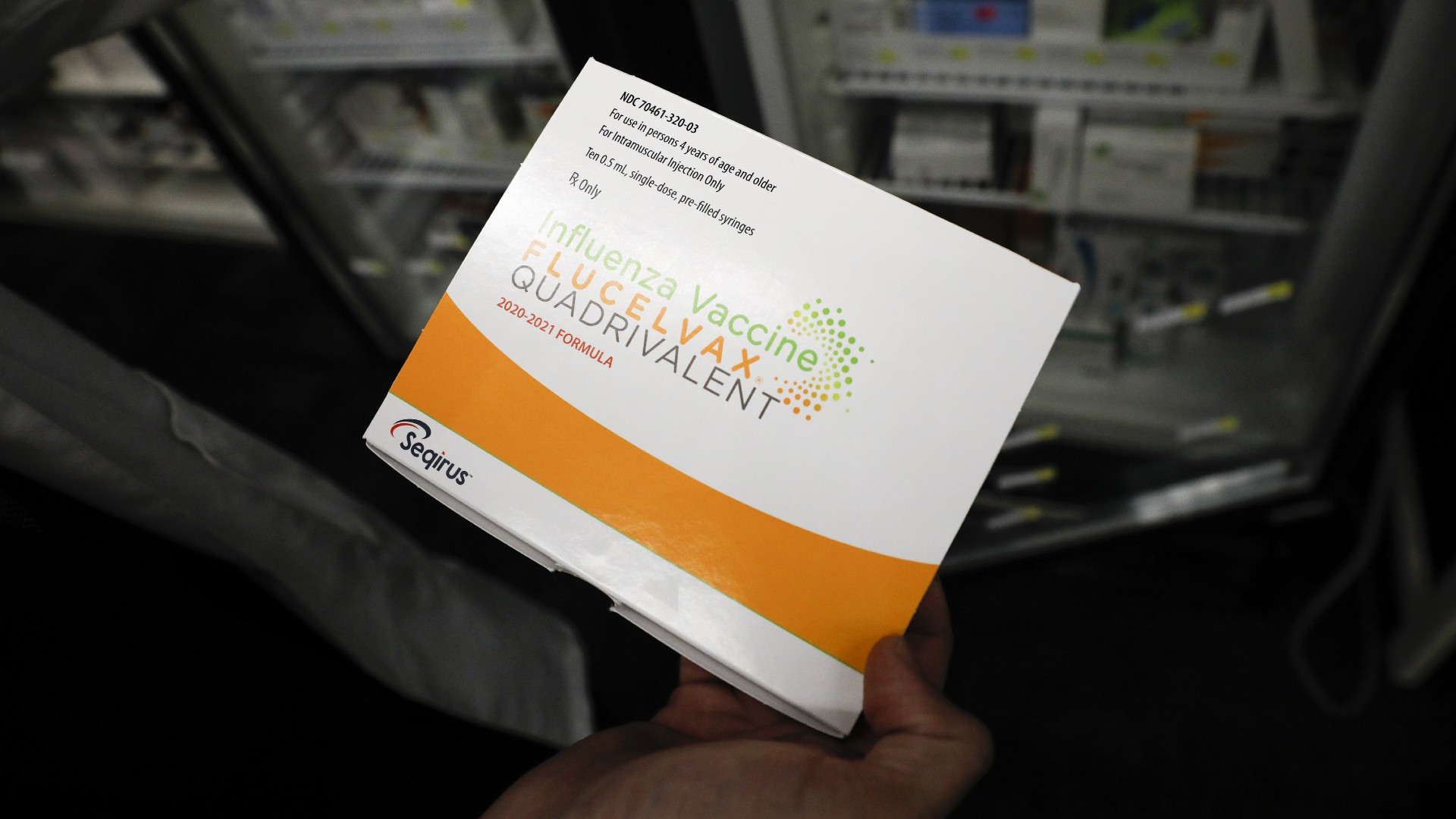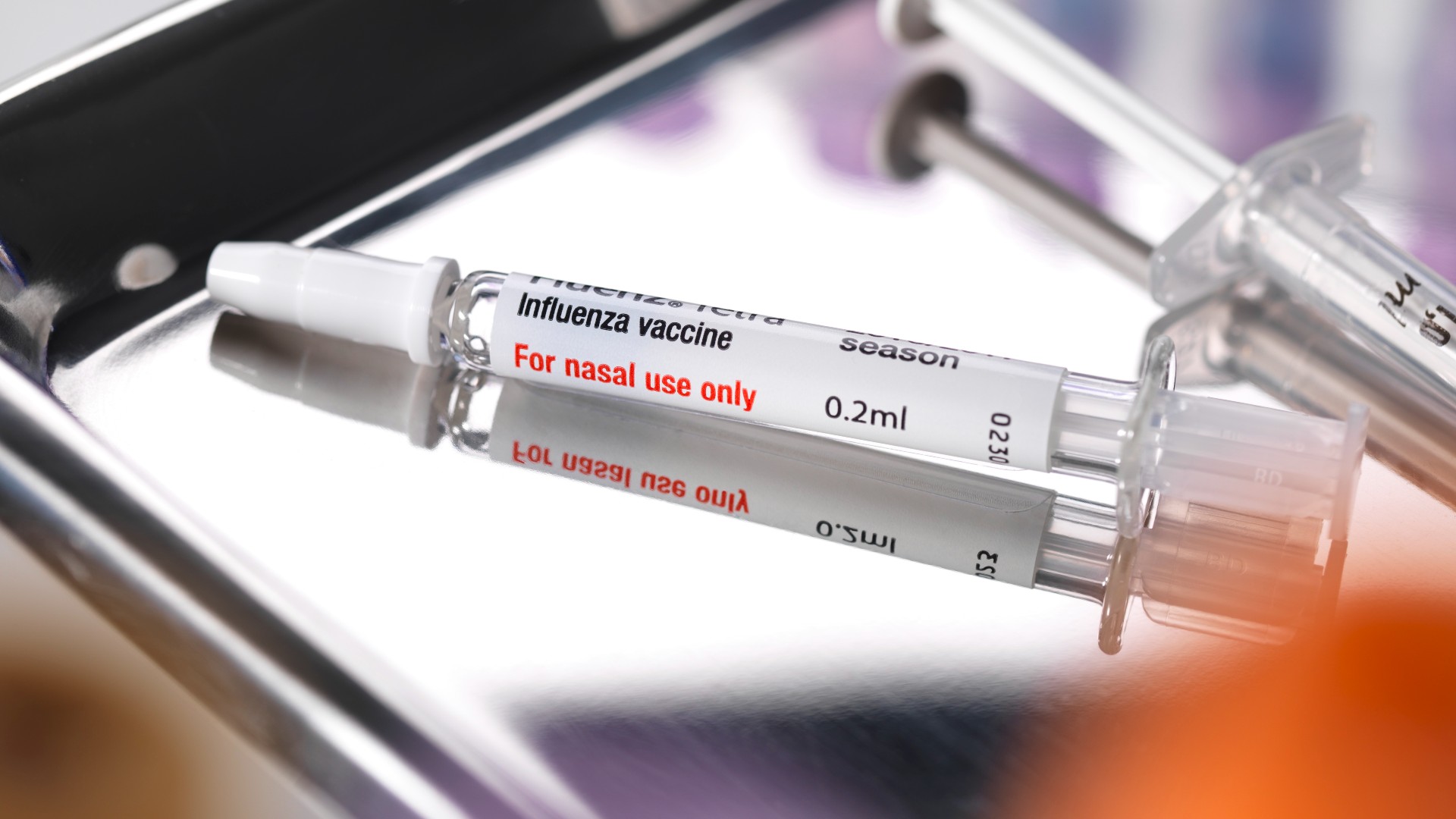Which flu shot should I get?
With so many different types of flu vaccines, how do you know which one is right for you?

It's the time of year for flu shots, but you might not know that there is more than one kind of flu vaccine. Indeed, half a dozen different types of flu shots are available for the 2022-2023 season, according to the Centers for Disease Control and Prevention (CDC). So which one should you get?
In general, flu shots are recommended for everyone ages 6 months and older. The specific types of vaccines you can get depend mainly on your age, and certain flu vaccines are preferentially recommended for older adults. In addition, certain health conditions may affect which flu shot you can get. Here's a rundown of the different types of flu vaccines available, and who's recommended to get them.
People younger than 65 years old

For people younger than 65, the CDC does not preferentially recommend one type of flu vaccine over the other. That means people in this age group can choose to receive any flu vaccine type that's approved for their age group. According to the CDC, these include:
Standard-dose, inactivated flu vaccines: These vaccines contain flu viruses that are grown in chicken's eggs and then inactivated (killed). They are approved for people ages 6 months and older. A number of different brands of standard-dose flu shots exist, including: Afluria Quadrivalent, Fluarix Quadrivalent, FluLaval Quadrivalent and Fluzone Quadrivalent.
Cell-based flu vaccine: There is one cell-based flu vaccine available for the 2022-2023 flu season, called Flucelvax Quadrivalent. Rather than being grown in eggs, flu viruses in this vaccine are grown in cultured mammalian cells, meaning the vaccine is completely egg-free. This vaccine also contains inactivated flu viruses. It is approved for people ages 6 months and older.
Recombinant flu vaccine: There is one recombinant flu shot approved for the 2022-2023 flu season, called Flublok Quadrivalent. (The vaccine uses recombinant DNA technology, when scientists use genetic engineering techniques to combine DNA from multiple sources to create a new DNA molecule.) This vaccine doesn't use the full influenza virus or chicken's eggs in the production process. Instead, this vaccine is made synthetically. To make the vaccine, researchers combine a flu virus gene with a baculovirus — a virus that grows well in insect cells but doesn’t cause disease in humans — according to the National Institute of Allergy and Infectious Diseases. This "recombinant" virus is then replicated in insect cells. The flu gene instructs the cells to produce a flu virus protein, and this protein is then harvested and purified to create the vaccine. It is approved for people ages 18 and older.
Flu nasal spray: There is one flu nasal spray available for the 2022-2023 season, called FluMist Quadrivalent, which is made using chicken's eggs. It contains flu viruses that have been attenuated (weakened) rather than killed, though these weakened flu viruses cannot cause the flu, Live Science previously reported. It is approved for people ages 2 through 49 years old. But certain groups of people should not get the flu nasal spray, including people who are pregnant and those with weakened immune systems (immunocompromised), according to the CDC.
Sign up for the Live Science daily newsletter now
Get the world’s most fascinating discoveries delivered straight to your inbox.

If all the flu shot options have you suffering from the agony of choice, the most important thing to keep in mind is to get one of the flu vaccines available to you every year, according to the CDC. If you have questions about flu vaccines, you can speak with your healthcare provider about your options. Here are some more things to consider:
Availability and cost: Your pharmacist or healthcare provider may only stock a couple of versions of the flu shot. You can speak with them about which shots they offer, and how much they cost, if not covered by your insurance.
Egg allergies: People with egg allergies can still receive any flu vaccine that's approved for their age group, according to the CDC. Most flu shots use eggs in the manufacturing process, but only very small amounts of egg protein end up in these flu vaccines. Studies have found that people with egg allergies are very unlikely to have a severe reaction to flu vaccines. The rate of anaphylaxis (a life-threatening allergic reaction) after flu shots is about 1 case per million vaccine doses given, according to the CDC. People who have severe allergic reactions to egg, such as trouble breathing, swelling under the skin, lightheadedness or recurrent vomiting, or who have required epinephrine treatment for their egg allergy, should receive their flu shot under the supervision of a healthcare provider who can treat severe allergic reactions, according to the CDC. People who wish to avoid vaccines made with eggs can get the cell-based or recombinant flu vaccines, which are egg-free.
Side effects: The flu nasal spray may cause a slightly different set of side effects compared with vaccines that contain inactivated (killed) flu viruses. Common side effects of inactivated vaccines can include redness at the injection site, fever, muscle aches, headache and fatigue. Side effects of the nasal spray may include runny nose, sore throat, headache and cough, and in children, wheezing, vomiting and a low grade fever.
If you're afraid of needles: With the exception of the flu nasal spray, flu vaccines are given through a needle injection. But one brand of the standard-dose flu vaccine, Afluria Quadrivalent, can be given through a so-called jet injector for people ages 18 through 64, according to the CDC. A jet injector uses a high-pressure stream of fluid to inject the vaccine through the skin, instead of a needle.
People 65 and older

Starting in the 2022-2023 flu season, the CDC recommends that people ages 65 and older preferably get vaccinated with one of the following three flu vaccines:
- The high-dose flu vaccine, called Fluzone High-Dose Quadrivalent vaccine. This egg-based vaccine is approved for people ages 65 and older and contains four times the amount of flu antigen (the part of the flu vaccine that induces an immune response) compared with the standard-dose vaccines.
- The adjuvanted flu vaccine, called Fluad Quadrivalent adjuvanted flu vaccine. This vaccine is also egg-based and approved for people ages 65 and older. It contains an ingredient, called an adjuvant, that helps boost the immune response to the vaccine.
- The recombinant flu vaccine (Flublok Quadrivalent). The recombinant vaccine contains three times the amount of antigen than standard-dose vaccines, which can induce a stronger immune response.
The CDC recommends these vaccines for people ages 65 and older because recent studies suggest that these three vaccines are potentially more effective for older adults compared with other versions of the flu shot, according to the CDC. (In general, older adults may have a reduced immune response to vaccines compared with younger people due to immune system changes that happen with age.) For example, For example, a 2014 study published in The New England Journal of Medicine (NEJM) randomly assigned more than 31,000 older adults to receive either the standard dose or high dose flu shot, and found that the high dose flu shot was 24% more effective at preventing flu illness compared with the standard dose. Another study, published in 2017 in NEJM, randomly assigned 9,000 older adults to receive either the standard dose flu vaccine or recombinant flu vaccine; and found that the recombinant vaccine reduced the likelihood of influenza illness by 30% compared with the standard dose.
"Given their increased risk of flu-associated severe illness, hospitalization, and death, it's important to use these potentially more effective vaccines in people 65 years and older," Dr. José R. Romero, director of CDC's National Center for Immunization and Respiratory Diseases, said in a statement.
Among these three vaccines, the CDC does not recommend one over the other, as they were all linked with increased protection for older adults. So older adults can get the one most readily available to them, according to AARP, the nonprofit organization that focuses on issues of people over 50. But if the recommended shots aren't available, older adults shouldn't wait to get vaccinated and should receive a standard-dose version of the shot instead, according to the CDC.
This article is for informational purposes only and is not meant to offer medical advice.
Originally published on Live Science.

Rachael is a Live Science contributor, and was a former channel editor and senior writer for Live Science between 2010 and 2022. She has a master's degree in journalism from New York University's Science, Health and Environmental Reporting Program. She also holds a B.S. in molecular biology and an M.S. in biology from the University of California, San Diego. Her work has appeared in Scienceline, The Washington Post and Scientific American.










